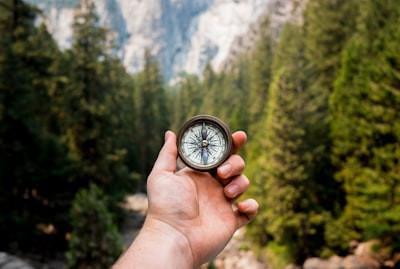Your Moral Compass Could Be Brocken
Curated from: bigthink.com
Ideas, facts & insights covering these topics:
7 ideas
·2.15K reads
13
Explore the World's Best Ideas
Join today and uncover 100+ curated journeys from 50+ topics. Unlock access to our mobile app with extensive features.
Steadfast Morals, Flashes And Compasses
What makes morality unique is that a lot of times, people experience a moral judgment as a flash of intuition or feeling, good or bad. But underneath that feeling is complex moral psychological structure.
We think that our morals are steadfast, as if they were set in stone or inscribed in ink, but it turns out our morals are far more fluid than we'd like to believe.
Morality might seem like a compass needle, always guiding us north, but as we start to add information and context that trigger biases, the needle begins to spin.
52
540 reads
Context Magnetizes The Morality Needle
Moral cognition depends hugely on context, so if someone tells us about a person who helped a stranger, we would say they're much better than the person who helped their brother. But if that someone told us about a person who helped the stranger instead of their brother, we wouldn't think they're very good at all.
It turned out through research that we really did that, that it was really people's intuitions about familial obligation that structured people's moral intuitions across all of these different cases.
49
346 reads
We Often Move The Needle Too
We may say adultery is wrong, but if it's a friend who we know well, who had a troubled marriage, maybe we're more forgiving. We say stealing is wrong, but we might be more understanding of our favorite politician when they're caught lining their pockets. We do this all the time.
The point is that there are lots of different contextual influences that contributes to people's moral judgments.
50
324 reads
Moral Laws Were Born To Facilitate And Advance Social Bonds
Morality has evolved with our species because of humans' practical and psychological need for social bonds, but even early human societies began codifying a morality into laws and norms that were meant to be applied universally.
The evolutionary origin of morality is coordination or cooperation to help people get onto the same page by pointing to common normative principles that we can use to negotiate relationships, to organize interactions across many different social contexts.
50
258 reads
So, Moral Laws Treat Different Bonds Differently
Back in evolutionary time, we didn't interact with others across the world; only with the people in our family, the people that we could see. It's because of that that we have developed these sorts of biases that have to do with social distance: we think that the harm that is being done up close and personal, right in front of us, matters more than the harm that is being done across an ocean.
So it shouldn't surprise us that the biases our minds exhibit are pragmatic. The moral judgments we make about people close to us are more forgiving and nuanced than the judgments we make of strangers.
47
207 reads
There’s Still A Tribe. Just A Very, Very Big One.
When we examine the moral judgments of others, it's tempting to think that we live in different worlds, but there's only one. The challenge today is that our social contexts are far more global and complicated, so can our sense of tribal morality evolve to encompass people outside of our tribe?
Studying moral psychology allows us access to others' perspectives, to the fact that others could have different values, and so just knowing that there is this complex space of moral psychology could help us to understand where other people are coming from.
43
221 reads
Let’s Find The Commonality And Fix Our Moral Compass
We're all connected in some way. Between any two people in the world, there's some common value or experience. Finding that commonality could be the best path towards a more morally-consistent world.
46
259 reads
IDEAS CURATED BY
CURATOR'S NOTE
We rarely question our own moral compass. But do we really know what shapes it?
“
Xarikleia 's ideas are part of this journey:
Learn more about philosophy with this collection
The value of hard work and persistence
How to stay focused on long-term goals
How to learn from failures and setbacks
Related collections
Similar ideas
2 ideas
How morally developed are you?
bigthink.com
6 ideas
Intentions Matter: How Source Intent Influences Perceptions of Truth
neurosciencenews.com
5 ideas
Moral Injury: An Extremely Damaging Phenomenon
exploringyourmind.com
Read & Learn
20x Faster
without
deepstash
with
deepstash
with
deepstash
Personalized microlearning
—
100+ Learning Journeys
—
Access to 200,000+ ideas
—
Access to the mobile app
—
Unlimited idea saving
—
—
Unlimited history
—
—
Unlimited listening to ideas
—
—
Downloading & offline access
—
—
Supercharge your mind with one idea per day
Enter your email and spend 1 minute every day to learn something new.
I agree to receive email updates
